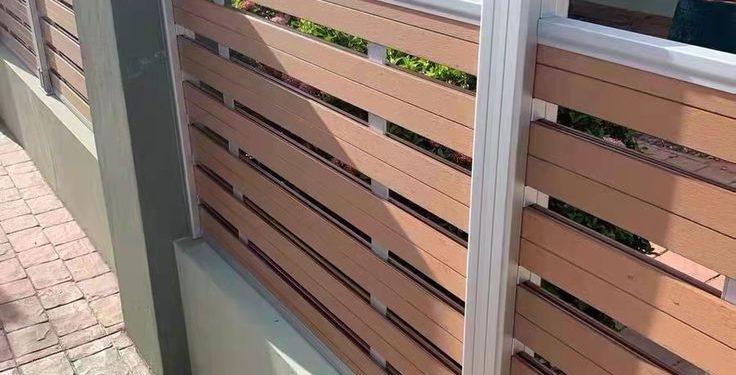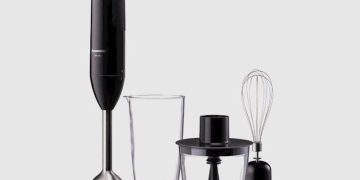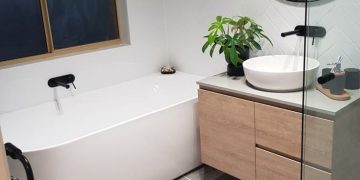When selecting a low-maintenance, durable fence for your backyard, Wood-Plastic Composite (WPC) and vinyl (PVC) are two popular contenders. Both offer significant advantages over traditional timber, but they possess distinct characteristics that can make one a more suitable choice than the other. While vinyl fencing has long been a go-to for its affordability and ease of care, WPC is increasingly favoured for its unique blend of aesthetics, enhanced durability, and environmental credentials.
This article explores the key advantages of wpc fence over vinyl, helping homeowners make an informed decision for their outdoor spaces.
1. Aesthetic Appeal and Natural Look
One of WPC’s most significant advantages lies in its ability to mimic the natural beauty of wood, offering a more organic aesthetic than purely plastic vinyl.
- Wood-Like Appearance: WPC is made from a blend of recycled wood fibres and plastic, allowing it to incorporate the texture and warmth of real wood grain. This provides a more natural and sophisticated look that many homeowners prefer, especially those who appreciate the traditional appeal of timber but desire low maintenance.
- Versatile Finishes: WPC is available in a range of colours, including various wood-look tones (teak, walnut, oak), as well as modern greys, charcoals, and blacks. These colours are integrated into the material, offering a consistent and lasting finish that can be more subtle than the often uniform, glossy appearance of vinyl.
- Design Flexibility: WPC can be manufactured to create panels with different textures and finishes, offering more design versatility to achieve specific modern or rustic-modern aesthetics.
2. Enhanced Durability and Resilience
While both materials are durable, WPC often boasts superior resilience in certain challenging conditions.
- Resistance to Warping and Cracking (Temperature Fluctuations): WPC is engineered to be highly stable against temperature changes. Unlike vinyl, which is 100% plastic and can be prone to cracking in very cold temperatures or warping in extreme heat, WPC’s composite nature provides better dimensional stability. This makes it particularly well-suited for environments with significant temperature swings.
- Impact Resistance: WPC generally has a higher density and greater impact resistance than vinyl. This means it’s less likely to dent, scratch, or crack from accidental impacts, making it a more robust option for busy backyards or areas prone to physical stress.
- Mould and Mildew Resistance: While both are resistant, WPC’s composition, particularly co-extruded WPC with a protective outer layer, can offer enhanced resistance to mould and mildew growth, especially in damp or shaded environments.
3. Environmental Friendliness
WPC holds a clear advantage over vinyl in terms of environmental impact, appealing to eco-conscious homeowners.
- Recycled Content: WPC typically utilises a significant percentage of recycled wood waste (sawdust, wood chips) and recycled plastics (post-consumer HDPE). This diverts waste from landfills and reduces the demand for virgin resources.
- Reduced Deforestation: By using wood waste, WPC lessens the reliance on newly harvested timber, contributing to forest conservation.
- No Harmful Chemicals (Maintenance): Like vinyl, WPC doesn’t require painting, staining, or sealing, eliminating the use of potentially toxic chemicals that can leach into the environment.
- Recyclability: While both materials can be recycled, WPC’s composition from both wood and plastic waste streams offers a unique contribution to the circular economy.
4. Long-Term Cost-Effectiveness
While vinyl may have a slightly lower initial cost, WPC’s extended lifespan and robust performance often make it more cost-effective in the long run.
- Longer Lifespan: WPC fences often come with longer warranties and have an expected lifespan that can surpass vinyl (25-30+ years for WPC vs. 20-30 years for vinyl), meaning fewer replacements over time.
- Minimal Repair Needs: Due to its superior resistance to impact and weather-induced damage, WPC may require fewer repairs compared to vinyl, where a damaged section often necessitates replacing an entire panel.
5. Overall Value Proposition
WPC fencing offers a compelling value proposition by combining the desired aesthetics of natural wood with the low-maintenance benefits of plastic, all while being a more environmentally responsible choice. For homeowners seeking a fence that not only performs exceptionally well but also enhances their property with a sophisticated and natural appearance, WPC stands out as the superior option.








